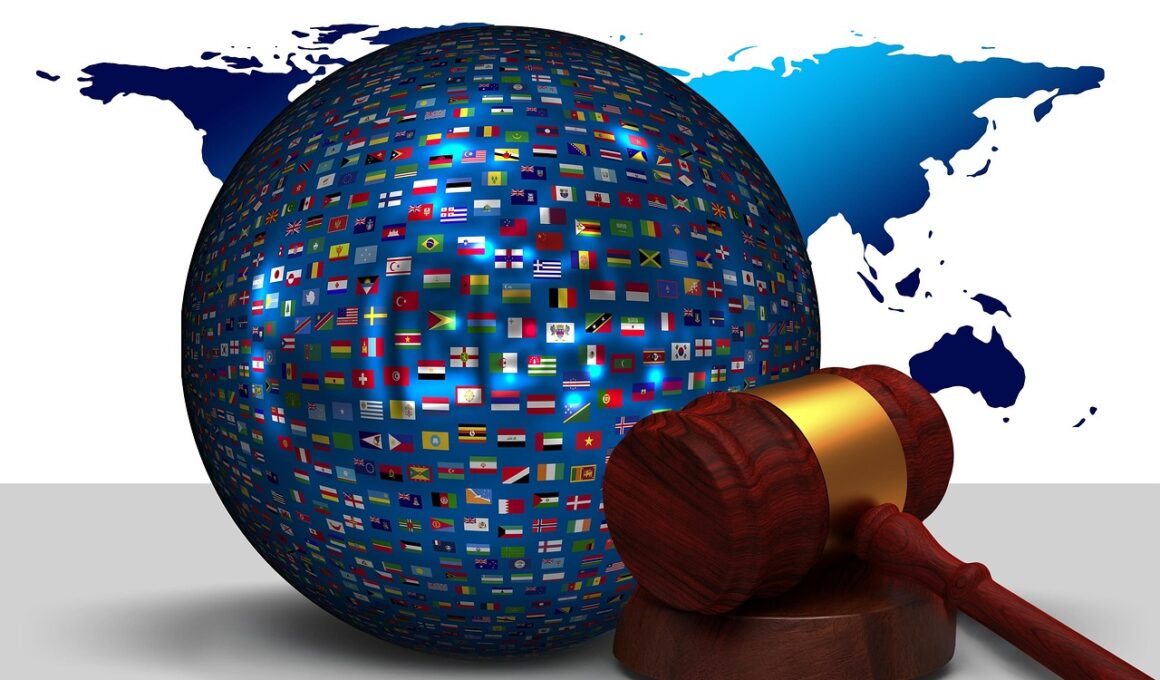The Role of Laws and Regulations in Marketing Ethics
Marketing ethics is a critical discipline that intersects with law, policy, and consumer rights, shaping how businesses engage with customers. Laws and regulations governing marketing practices are essential for ensuring fairness in advertising, thereby protecting consumers from misleading claims and unethical conduct. At the heart of marketing ethics lies the adherence to principles that uphold honesty, responsibility, and transparency. Understanding the unique landscape of legal frameworks allows marketers to navigate potential pitfalls while establishing best practices. Furthermore, ethical marketers leverage laws not just as a compliance measure, but as a means to build trust with their audience. By aligning their practices with both legal statutes and ethical considerations, brands can foster long-lasting relationships with consumers. Ethical marketing leads to sustainable business practices that contribute positively to societal welfare. Hence, compliance with laws is not merely a legal necessity but also a cornerstone of successful marketing strategy. As businesses strive to meet the expectations of informed consumers, understanding the interplay of regulations and ethical obligations becomes foundational in crafting effective and responsible marketing campaigns.
The advertising standards set forth by various governing bodies play a pivotal role in defining acceptable marketing practices. In many countries, regulatory organizations like the Federal Trade Commission (FTC) in the United States and Advertising Standards Authority (ASA) in the UK enforce rules that govern advertisements. These organizations are tasked with ensuring that advertisements are not misleading and that claims made by advertisers can be substantiated. Compliance with these regulations not only reduces the risk of legal action but enhances a company’s reputation. Companies found violating advertising standards face penalties, ranging from fines to injunctions, impacting their operation and financial performance. As a result, corporations are increasingly investing in compliance programs that educate their employees on legal marketing practices. Moreover, ethical dilemmas often arise when laws are ambiguous or lag behind technological advancements, particularly online marketing. This underscores the necessity for continuous dialogue among stakeholders about ethical standards in marketing. By fostering a culture of compliance, organizations can create an environment where ethical practices thrive, aligning legal obligations with corporate values and enhancing overall community trust.
The Impact of Consumer Protection Laws
Consumer protection laws serve as a safeguard for individuals, ensuring that their interests are prioritized in the marketplace. These laws dictate specific ethical mandates that marketers must follow to ensure transparency and fairness. For instance, the Consumer Product Safety Act provides safety guidelines for products marketed to consumers, holding companies accountable for providing accurate information and ensuring product safety. Similarly, laws regarding false advertising explicitly prohibit deceptive practices that could mislead consumers about what they are buying. Violations can lead to significant repercussions and a loss of consumer trust. Marketers must, therefore, remain aware of these laws to avoid potential legal issues that can arise from unethical practices. Effective marketing not only provides clear and accurate information regarding products and services but also respects the rights of consumers at every level. As they formulate promotional campaigns, businesses need to integrate ethical considerations and respect consumer rights at the core of their strategies. Such integration not only fulfills legal obligations but also cultivates a loyal customer base that appreciates transparency and ethical conduct.
Another crucial element of marketing ethics is the need for accountability in the data collection processes used by marketers. With increasing digitization, businesses often collect vast amounts of consumer data without fully disclosing how it will be used. Laws like the General Data Protection Regulation (GDPR) in the EU emphasize the importance of protecting consumers’ personal information. These regulations underline the necessity for businesses to be transparent about data usage, share their data protection policies with users, and obtain explicit consent. Violating these data protection laws can result in heavy fines and reputational damage, making it essential for marketers to integrate ethical data usage into their marketing strategies. Implementing robust data protection measures can enhance trust, showing customers that their privacy matters. Transparency in how customer data is utilized builds confidence, fostering better relationships between consumers and companies. Ethical data practices also encourage companies to maintain high standards of accountability and responsibility toward their audience. This alignment with both legal requirements and ethical principles ultimately contributes to a healthier marketing ecosystem.
The Influence of Global Marketing Regulations
Globalization has introduced a complex landscape of marketing regulations that marketers must navigate. Companies operating in international markets are often faced with diverse regulatory environments that can differ significantly from their home country. Understanding and complying with local marketing laws is vital to ensure ethical engagement with consumers. For instance, some countries have stricter regulations on advertising to children or on the promotion of certain products like alcohol and tobacco. Failing to adhere to these laws can lead to severe penalties and reputational harm. Furthermore, global marketers must balance compliance with local norms and values against their corporate marketing strategies. This necessitates ongoing training and awareness programs to build local knowledge within marketing teams. By doing so, companies can respect cultural sensitivities while remaining effective in their marketing approaches. Incorporating a global perspective on marketing ethics allows brands to cultivate an inclusive image and build trust with diverse audiences. This ethical global marketing strategy enhances brand credibility and fosters consumer loyalty across different markets, leading to more sustained business growth.
The role of corporate social responsibility (CSR) has gained traction in shaping marketing ethics, intertwined with legal obligations. Businesses are increasingly held accountable not just for following laws but also for their impact on society and the environment. Ethical marketing practices now include considerations of sustainability and social equity. For example, companies are expected to promote their products responsibly, ensuring their advertising does not exploit vulnerable populations. Regulations surrounding CSR compel businesses to report their efforts in social responsibility and environmental stewardship, fostering transparent communication with consumers. More consumers demand accountability for ethical practices, creating pressure on brands to uphold high standards in their marketing approaches. Those who fail may risk losing their customer base, as an increasing number of consumers prefer to engage with brands that express strong social commitments. By aligning their marketing strategies with social responsibility, companies can craft impactful campaigns that resonate with consumers’ values. This alignment not only satisfies legal expectations but enhances brand loyalty, offering a competitive edge in increasingly conscious markets.
Conclusion: The Future of Marketing Ethics
As the landscape of marketing continues to evolve, so too will the ethical considerations surrounding it. Developments in technology and shifting consumer expectations require marketers to stay agile and informed on both legal and ethical standards. The future of marketing ethics lies in the seamless integration of ethical practices within business operations and culture. Marketers must proactively anticipate changes, recognizing that ethical failures can lead to severe legal implications and loss of consumer trust. This dynamic environment encourages continual learning, adaptation, and fostering a company-wide commitment to ethical marketing. As businesses look ahead, those that prioritize ethical marketing integrated with their core values will likely see enhanced brand equity and long-term success. In conclusion, adherence to laws and ethical guidelines not only mitigates risks but also positions brands as trustworthy entities in the marketplace. Consumers increasingly seek brands that align with their values, which underscores the importance of strategic and ethical marketing practices. By embracing ethical standards today, companies will be better equipped to navigate the complexities of tomorrow’s marketing landscape effectively.
In addition to adapting to evolving regulations, education and awareness play a crucial role in fostering marketing ethics. Organizations are encouraged to provide ongoing training for their employees concerning ethical marketing practices and legal responsibilities. By conducting workshops, seminars, and regular communications, companies can build a culture of ethical awareness within their teams. Familiarity with both laws and ethical standards empowers employees to make informed decisions, reducing the chances of unethical practices slipping through the cracks. Moreover, companies can benefit from establishing clear ethical guidelines that outline acceptable marketing practices and behavioral standards. Such frameworks not only help employees understand their obligations but also provide a basis for accountability. In this way, ethical marketing becomes an integral part of the corporate identity and operational processes. As businesses embrace this proactive approach to ethics, they will be better positioned to deal with the dynamic marketing landscape. Today’s informed consumers increasingly gravitate toward companies that demonstrate integrity and social responsibility. Therefore, prioritizing ethics in marketing is not just a legal obligation; it is a strategic advantage that enhances long-term success.


